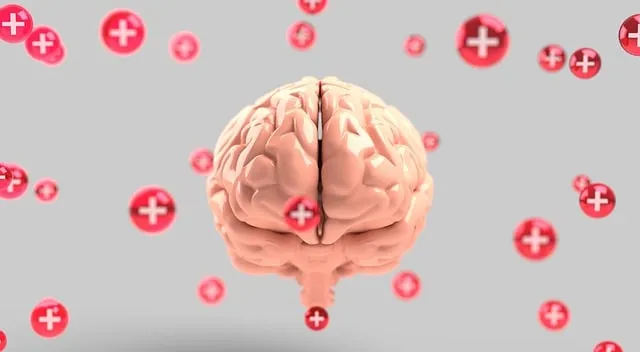The Kaiser Permanente behavioral health center in Greenwood Village offers specialized trauma support services using evidence-based practices like CBT and compassion cultivation. They cater to individuals affected by traumatic events, providing personalized treatment, group sessions, and advocacy for mental health policy changes. Through these comprehensive approaches, the center aims to empower clients to manage emotions, heal, and regain well-being, while community engagement strategies ensure tailored support for diverse populations.
Trauma support services are vital in addressing the profound impact of traumatic events on individuals and communities. This article delves into the critical role of healthcare providers, specifically the Kaiser Permanente Behavioral Health Center in Greenwood Village, in delivering effective trauma-informed care. We explore strategies to enhance service provision, emphasizing community engagement and accessible resources. By understanding trauma’s effects, we can revolutionize support systems, ensuring a healthier and more resilient future for all, with a special focus on the services offered by the aforementioned healthcare center.
- Understanding Trauma and Its Impact: A Foundation for Support Services
- The Role of Kaiser Permanente Behavioral Health Center in Greenwood Village
- Strategies for Effective Trauma-Informed Care
- Community Engagement and Resources: Expanding the Reach of Trauma Support
Understanding Trauma and Its Impact: A Foundation for Support Services

Trauma is a profound and complex experience that can profoundly affect an individual’s mental and emotional well-being. It stems from various sources, including severe accidents, violent incidents, natural disasters, or prolonged exposure to distressing situations. Recognizing trauma’s impact is paramount in establishing effective support services. At the Kaiser Permanente behavioral health center in Greenwood Village, professionals are dedicated to helping individuals navigate their traumatic experiences and foster healing.
Understanding trauma involves recognizing its far-reaching consequences. It can manifest as acute stress reactions or develop into long-term conditions like post-traumatic stress disorder (PTSD). By implementing evidence-based practices, the center aims to create a safe space for clients to process these experiences. This includes fostering emotional intelligence and confidence-boosting strategies, which are essential components of the Mental Health Policy Analysis and Advocacy approach, ensuring individuals have the tools to manage their trauma’s lasting effects.
The Role of Kaiser Permanente Behavioral Health Center in Greenwood Village

The Kaiser Permanente Behavioral Health Center located in Greenwood Village plays a pivotal role in providing comprehensive trauma support services. This center is equipped to address various mental health needs, particularly focusing on trauma-informed care. By integrating evidence-based practices and innovative therapeutic approaches, the facility offers specialized programs tailored to individuals who have experienced traumatic events. The center’s dedicated team of mental health professionals is trained in risk assessment for mental health issues, ensuring a thorough evaluation and personalized treatment plans.
Beyond individual therapy, the Kaiser Permanente Behavioral Health Center facilitates group sessions that foster a sense of community among individuals navigating trauma. This supportive environment encourages open dialogue, promotes healing, and enhances coping strategies. Furthermore, the center actively engages in Mental Health Policy Analysis and Advocacy, driving systemic changes to improve access to quality mental wellness services within the local community and beyond.
Strategies for Effective Trauma-Informed Care

Effective trauma-informed care requires a multifaceted approach, one that goes beyond traditional treatment models. At the Kaiser Permanente behavioral health center in Greenwood Village, professionals employ strategies tailored to address the complex needs of individuals who have experienced trauma. These include evidence-based practices such as Cognitive Behavioral Therapy (CBT), which helps individuals challenge negative thought patterns and behaviors resulting from traumatic experiences.
Additionally, centers like this integrate compassion cultivation practices and emotional healing processes into their care plans. By fostering a sense of safety, warmth, and connection, these strategies promote resilience and adaptive coping mechanisms. The goal is to empower individuals to navigate their emotional landscapes, improve mood management, and ultimately reclaim their well-being in a supportive and understanding environment.
Community Engagement and Resources: Expanding the Reach of Trauma Support

Community engagement is a powerful tool to enhance trauma support services and ensure that those affected by traumatic events receive the help they need. By partnering with local organizations, schools, and community leaders in areas like Greenwood Village, where the Kaiser Permanente behavioral health center operates, mental healthcare providers can increase their reach and impact. This strategy allows for tailored interventions that address specific community needs, fostering resilience-building programs and confidence-boosting initiatives.
The integration of cultural sensitivity in mental healthcare practice is essential when expanding services into diverse communities. Understanding and respecting cultural nuances ensures that support is accessible and meaningful to all individuals, regardless of their background. This approach not only improves the effectiveness of trauma support but also encourages community members to actively participate in their healing journey, creating a supportive network that reinforces positive outcomes.
Trauma support services are vital for healing and recovery, as evidenced by the comprehensive strategies discussed. The Kaiser Permanente Behavioral Health Center in Greenwood Village serves as a beacon of hope, offering specialized care tailored to individuals’ unique experiences. By integrating trauma-informed practices and engaging the community, we can create a more inclusive and supportive environment. Expanding access to resources ensures that those affected by trauma receive the necessary assistance, fostering resilience and empowering individuals to reclaim their lives.






